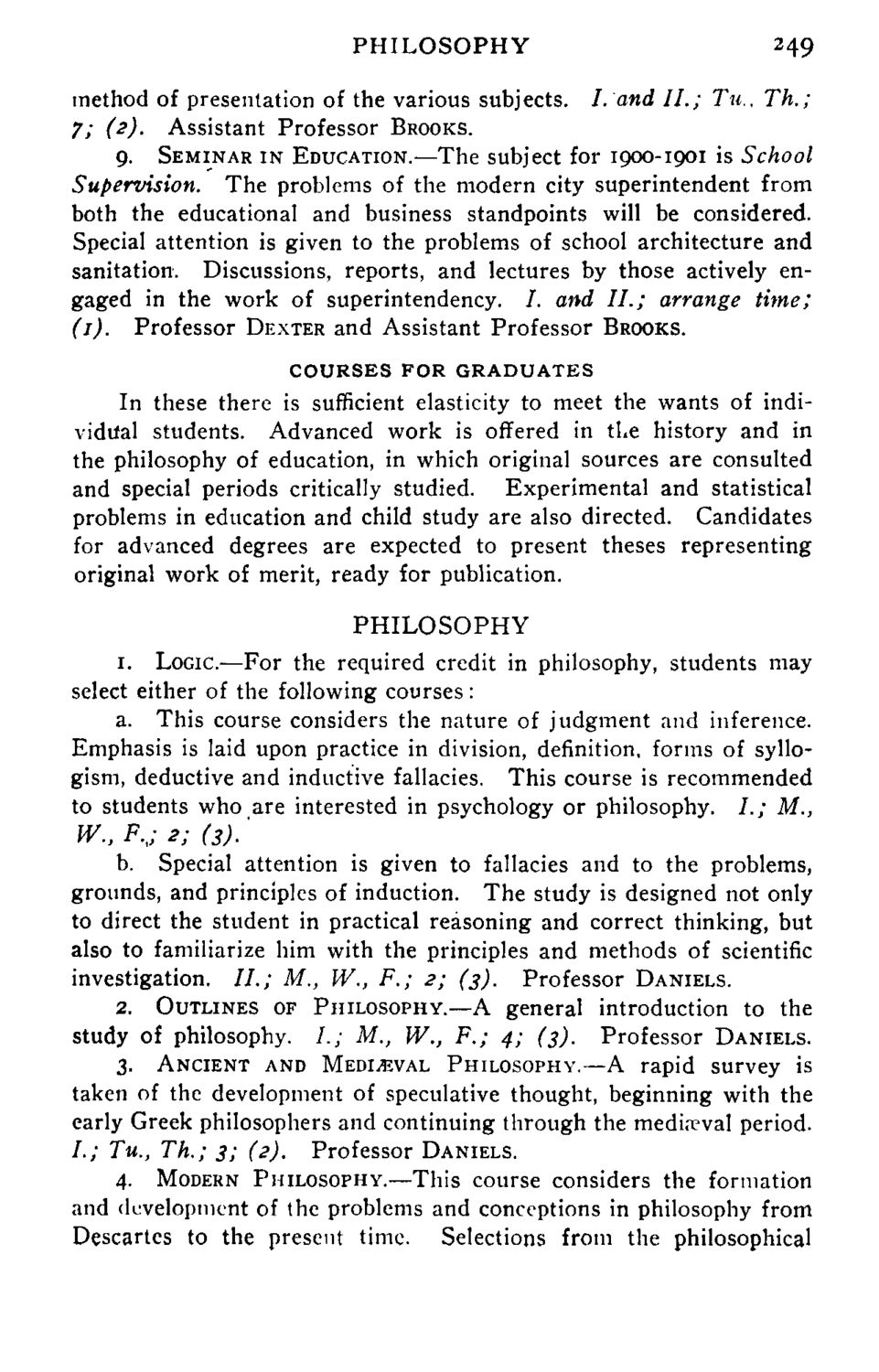Caption: Course Catalog - 1899-1900
This is a reduced-resolution page image for fast online browsing.

EXTRACTED TEXT FROM PAGE:
PHILOSOPHY 249 inethod of presentation of the various subjects. I. and II.; Tu.. Th.; 7; (2). Assistant Professor BROOKS. 9. SEMINAR IN EDUCATION.—The subject for 1900-1901 is School Supervision. The problems of the modern city superintendent from both the educational and business standpoints will be considered. Special attention is given to the problems of school architecture and sanitation. Discussions, reports, and lectures by those actively engaged in the work of superintendency. /. and II.; arrange time; (1). Professor DEXTER and Assistant Professor BROOKS. COURSES FOR GRADUATES In these there is sufficient elasticity to meet the wants of individual students. Advanced work is offered in the history and in the philosophy of education, in which original sources are consulted and special periods critically studied. Experimental and statistical problems in education and child study are also directed. Candidates for advanced degrees are expected to present theses representing original work of merit, ready for publication. PHILOSOPHY 1. LOGIC.—For the required credit in philosophy, students may select either of the following courses : a. This course considers the nature of judgment and inference. Emphasis is laid upon practice in division, definition, forms of syllogism, deductive and inductive fallacies. This course is recommended to students who are interested in psychology or philosophy. / . ; M., W., F.,; 2; (3).' b. Special attention is given to fallacies and to the problems, grounds, and principles of induction. The study is designed not only to direct the student in practical reasoning and correct thinking, but also to familiarize him with the principles and methods of scientific investigation. / / . ; M., IV., F.; 2; (3). Professor DANIELS. 2. OUTLINES OF PHILOSOPHY.—A general introduction to the study of philosophy. / . ; M., W., F.; 4; (3). Professor DANIELS. 3. ANCIENT AND MEDIEVAL PHILOSOPHY.—A rapid survey is taken of the development of speculative thought, beginning with the early Greek philosophers and continuing through the medieval period. / . ; Tu., Th.; 3; (2). Professor DANIELS. 4. MODERN PHILOSOPHY.—This course considers the formation and development of the problems and conceptions in philosophy from Descartes to the present time. Selections from the philosophical
|